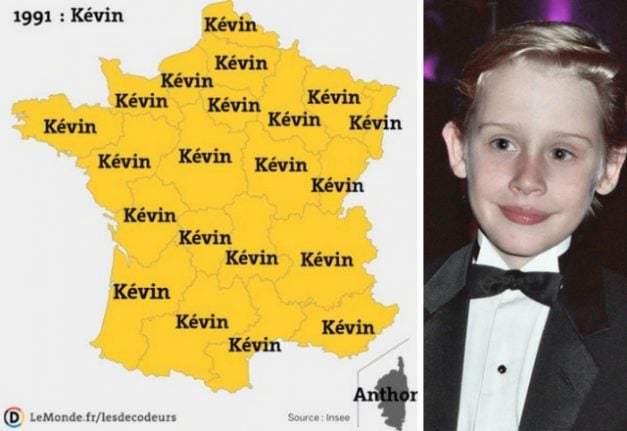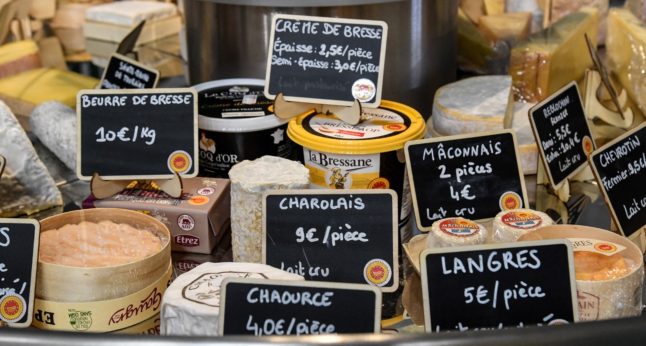Then suddenly one name dominates every region of mainland France: Kévin. Some 14,087 bébé Kévins came into the world in France in the year 1991.
Why did this very ‘un-Gallic’ name suddenly dominate the most-popular baby name lists in a country that has a reputation for turning its nose up at Anglo words and names?
It’s accepted that two Hollywood films were to blame.
‘Dancing with Wolves’, starring Kevin Costner and ‘Home Alone’, whose main character was Kevin McCallister, played by Macauley Culkin took to the screens worldwide just one year before
It seems they made a big impression on Gallic parents to be.
In all, some 26,000 mamans and papas, with memories still fresh in their minds of Kevin Costner riding bareback across the plains, and McCallister drenching crooks with paint cans, decided to name their new-born child in the honour of film royalty.
But not just with the English spelling, oh no, whack an accent on the ‘e’ and no one will know. Right?

It has to be said the name Kévin wasn’t totally unknown in France before this point, the Irish saint Kévin influenced a few namesakes mainly in Brittany.
It was also included on the list of official baby names that French parents were forced to choose from when naming their child. Coincidentally that list was scrapped in 1993, although French officials are still banning many names deemed inappropriate, including Nutella.
But the fall of Kévin was as swift as its rise as it soon plunged in popularity. By 2010 fewer than two babies named Kévin were born every day in France.
The name dropped out of fashion after a couple of years, according to sociologist Baptiste Coulmont because“Parisian intellectual elites” sneered at the name. Apparently, it was deemed tacky and in poor taste to name a French child after a Hollywood actor, and fictional American child from a Christmas film.
Now, being a Kévin in a French world of Juliens and Sébastiens can apparently even hold you back in life.
Submit a CV with the name Kévin on it and you’ll have a 10 percent chance of getting hired compared to a 30 percent chance for an Arthur with the same CV, noted Jean-Francois Amadieu from the French discrimination Obervatory.
A Reddit thread on “what name is considered to be trashy in your country” had commenters from France saying that calling someone “a Kevin” is “practically an insult” denoting childishness and low intelligence because of the association with film and TV.
In Iegor Gran’s novel “Kevin’s Revenge” the beleaguered protagonist laments, “A Kevin cannot, doesn’t have the right to be an intellectual. He could be a personal trainer, printer salesman, a convenience store manager. But an intellectual, impossible.”
But the Kévins are fighting back.
Numerous French sites have run articles on “people called Kevin who have succeeded in life” to combat negative stereotypes about Kévins (“Kévinspiration” if you will).
But none are from France. In fact a internet search for famous French Kévins does not bring up many results.
And despite the ridicule, a surprisingly low number of Kevins are changing their names.
International business student Kévin H. told French paper Le Point he’s not planning on changing his name in spite of teasing and even losing out on romantic opportunities.
“A girl who judges people based on their name – she’s not for me!”
By Rose Trigg



 Please whitelist us to continue reading.
Please whitelist us to continue reading.
Member comments